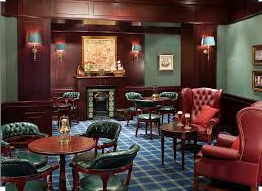Local Third Places and Re-Imagining Economies as Sustainable
Professor Ray Oldenburg has spent many years analysing the social function of what he has coined ‘third places’. His books work to highlight the need for juncture places; places we meet and chew the cud with others in our community and network. Rather than the idea of social separate from economic, he recognises that the two lenses of seeing the world as being intimately bound and tied to each other. Read more…

